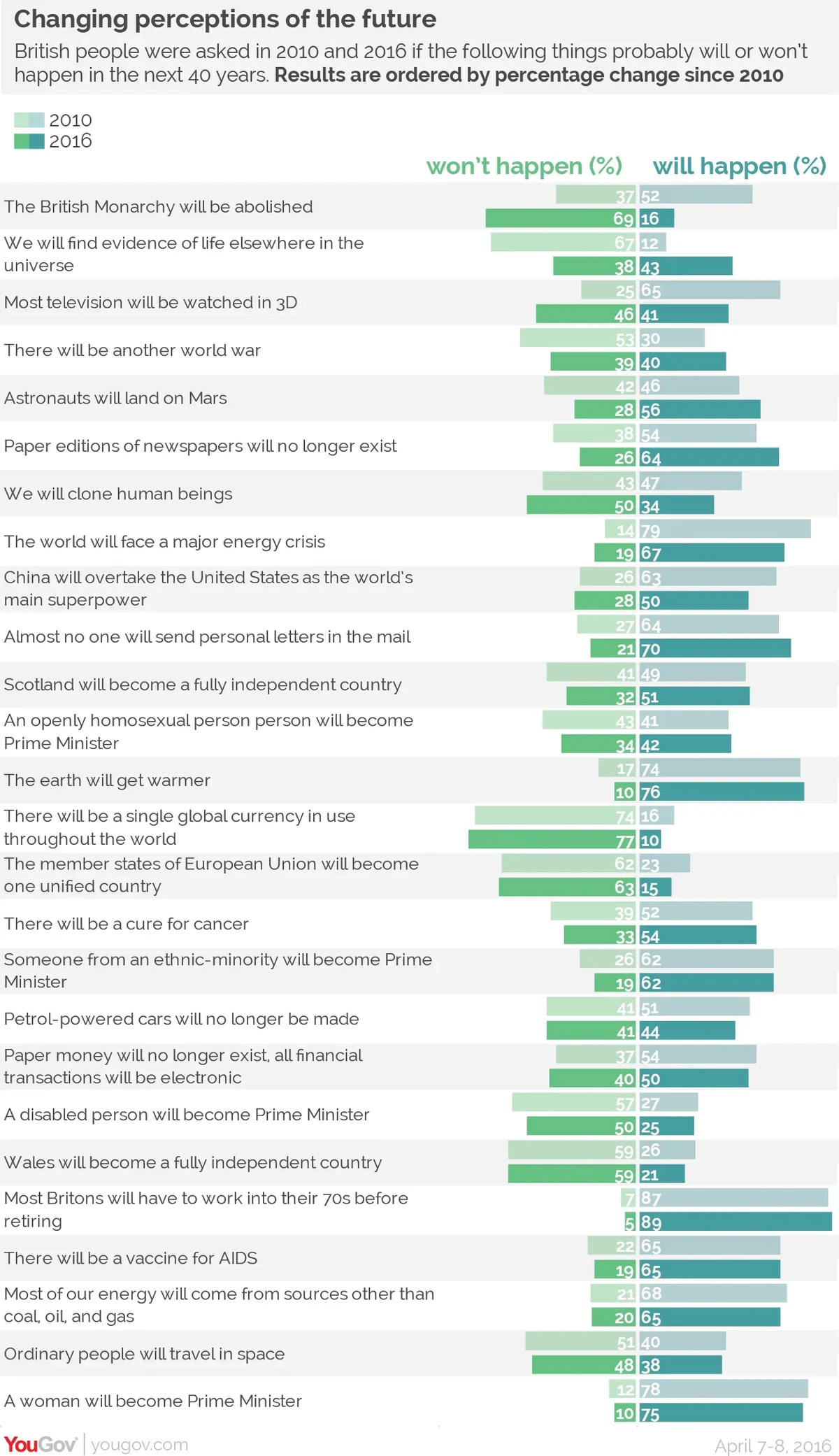Since 2010 British people have become more certain of the British monarchy's future and that humans will find extra-terrestrial life – but less interested in 3D TV or cloning
Some opinions that YouGov tracks are entirely understandable – confidence in the economy ebbs and flows with the growth rate; approval of politicians moves with the latest scandal; and which issues are seen as the most important follows the news cycle. But there are other shifts in mood – feelings about things arguably more important than the daily drama of Westminster – that are harder to pin on a single news event. These are perceptions of the way the world is moving, the technologies we will consume and the threats humanity will face.
In a new study which begun in 2010 YouGov has re-asked a series of 26 questions about what the world will look like in 40 years time. The movement in predictions reveals some fascinating insights into how our worldview has changed over the past six years.
In 2010 most British people thought the Monarchy would be abolished by 2050, that we had no hope of finding extra-terrestrial life and that the majority of television would be 3D. These have all been reversed. Perhaps the wedding of Prince William and Catherine Middleton in 2011, followed by the British Olympics and Diamond Jubilee in 2012, rejuvinated confidence in the longevity of the royal family. In 2010 52% thought the monarchy would be abolished – now 69% think it will not.

In December 2015 astronought Tim Peake became the first British person to board the International Space Station. At the time we found a significant increase on 2013 in British people saying it was important for humans to explore space (73%, up from 54%). Since 2010 there have been numerous stories of space travel and success in physics, and this may have boosted confidence in finding extra-terrestrial life (up from 12% to 43%) and landing an astronought on Mars (46% to 56%).
In some areas, however, views have become more negative. People are more likely to predict another world war than in 2010 (up from 30% to 40%), and to say print newspapers will no longer exist (54% to 64%).







